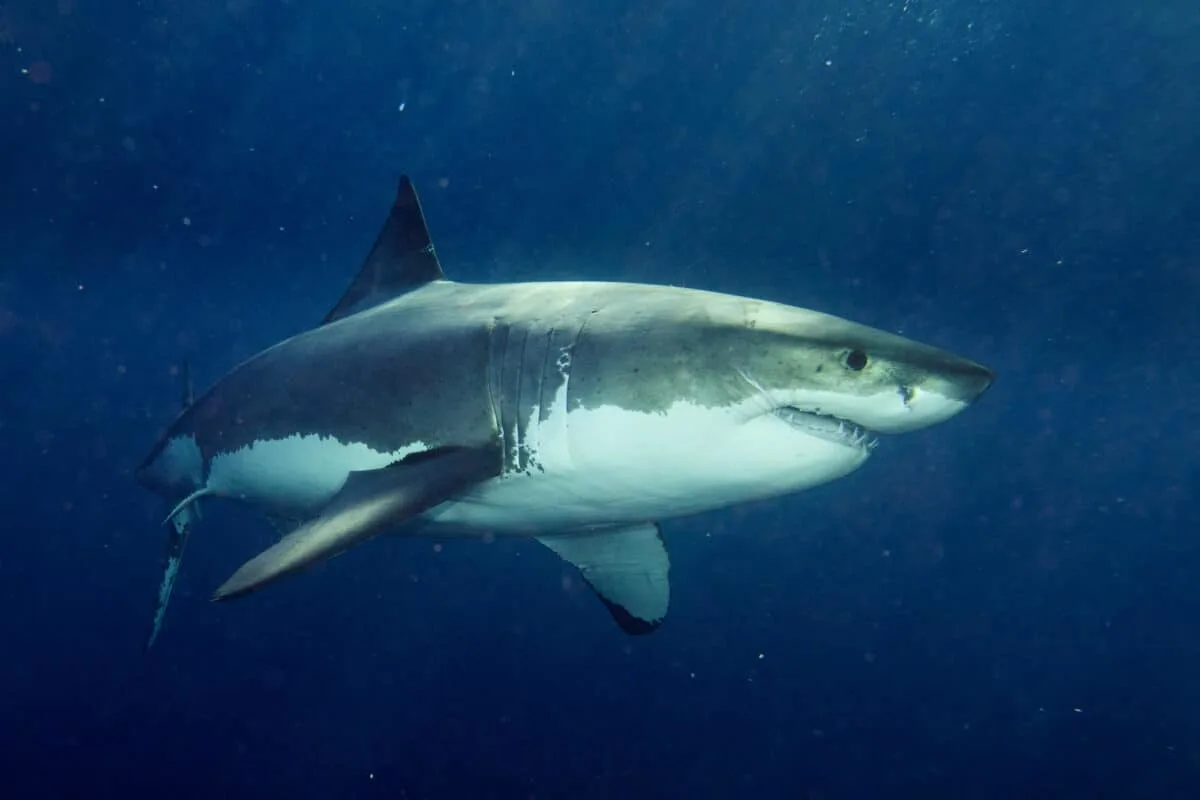The Great White Sharks Vs. Saltwater Crocodiles are two of the most formidable predators in the world’s oceans. However, when it comes to a head-to-head battle between these two giants of the sea, who would come out on top? In this blog, we will explore the similarities and differences between the Great White Shark and the Saltwater Crocodile to try to determine the one that would win the fight!
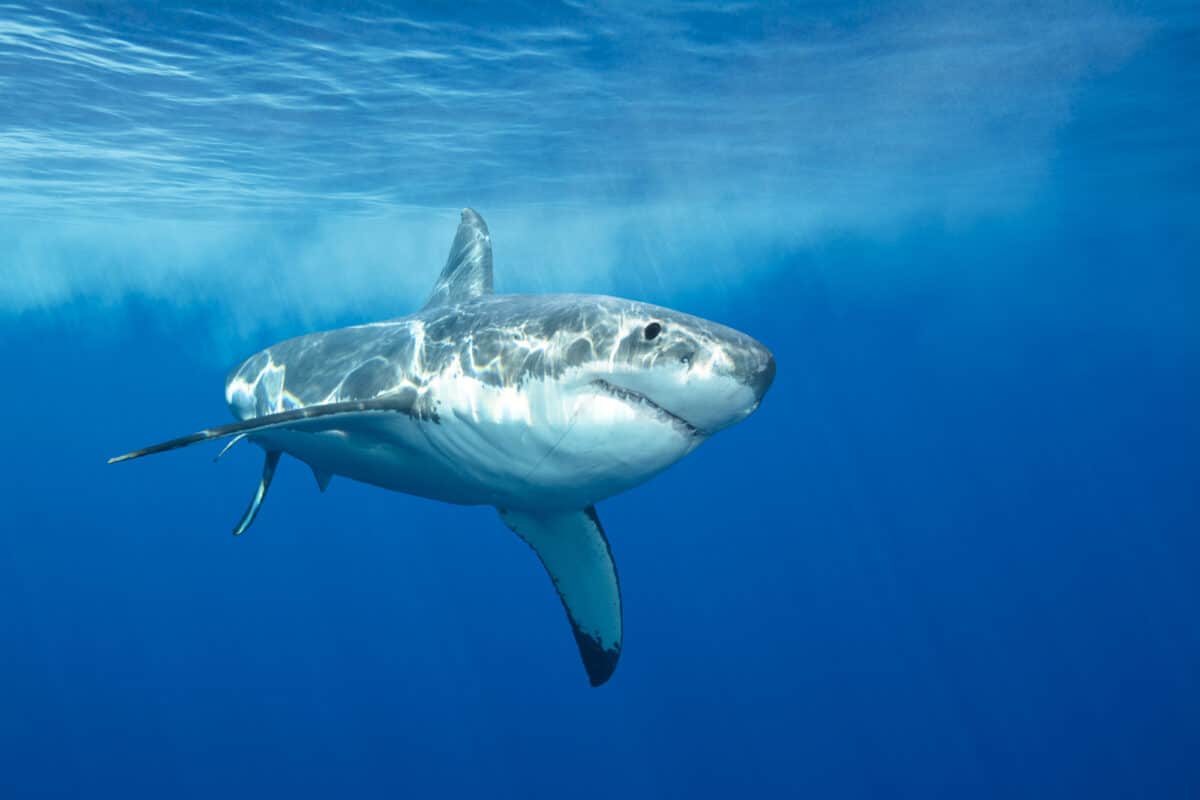
Key Points
| The Great White Shark is one of the largest predatory fish in the world, reaching lengths of up to 20 feet and weighing up to 5,000 pounds. |
| The Saltwater Crocodiles have a robust and muscular body, powerful legs, and a long tail that allows them to move swiftly on land and in water. |
| Great white sharks are often seen near seal and sea lion colonies, which provide a reliable food source for these animals. |
| On the other hand, the saltwater crocodile can be found in many different water bodies, including rivers, swamps, and the open ocean.Both great white sharks and saltwater crocodiles have a reputation for being dangerous to humans and are responsible for numerous attacks each year. |
Want to jump ahead? Click below
Comparison Table
| Features | Great White Shark | Saltwater Crocodile |
|---|---|---|
| Size | Length: Up to 20 feet Weight: Up to 5,000 pounds | Length: Up to 23 feet Weight: Up to 2,200 pounds |
| Physical Characteristics | Torpedo-shaped body, powerful tail, large dorsal fin, razor-sharp teeth | Robust and muscular body, powerful legs, long tail, mighty jaws |
| Habitat | Coastal waters of California, Australia, South Africa, and other major oceans | Rivers, swamps, open ocean; overlapping areas with Great White Sharks in estuaries and coastlines of Australia |
| Diet and Hunting | Preys on smaller sharks, rays, tuna, seals, sea lions. Uses stealth and cunning to track and strike prey | Eats fish, birds, mammals, smaller crocodilesHunts in water and on land with powerful jaws |
| Behavior | Curious, unpredictable; can breach out of water; often investigates boats | Opportunistic hunters, most giant reptiles; powerful jaws; dangerous if threatened |
| Human Interaction | Responsible for rare attacks; crucial to marine ecosystem | Responsible for rare attacks; essential to maintain ecological balance |
Size And Physical Characteristics
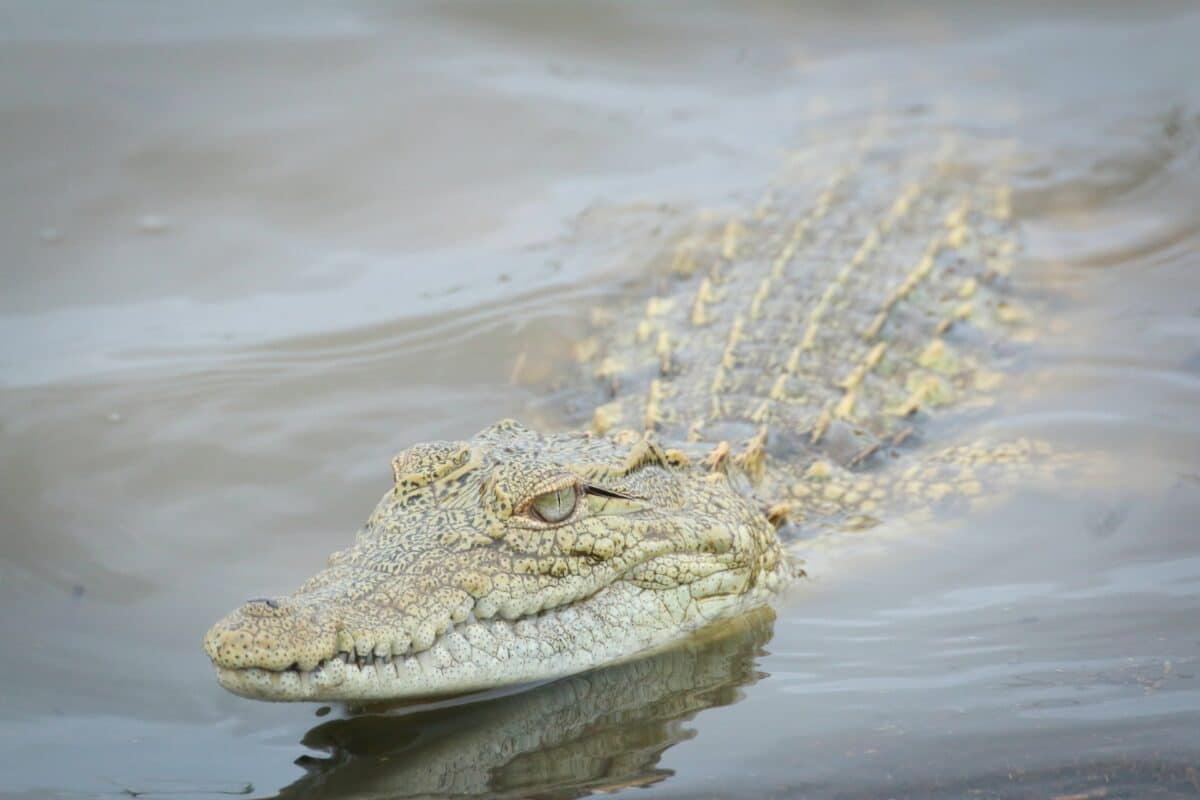
The Great White Shark is one of the largest predatory fish in the world, reaching lengths of up to 20 feet and weighing up to 5,000 pounds. They have torpedo-shaped bodies with powerful tail and a large dorsal fin that propels them through the water at incredible speeds of up to 35 mph. Moreover, it is equipped with razor-sharp teeth that can deliver a bite force of up to 18,000 newtons, making them one of the deadliest predators in the ocean.
On the other hand, Saltwater Crocodiles have robust and muscular body, powerful legs, and a long tail that allows them to move swiftly on land and in water. The Saltwater Crocodiles also possess a set of mighty jaws that can deliver a crushing force, making them one of the most ferocious land animals on the planet.
Habitat
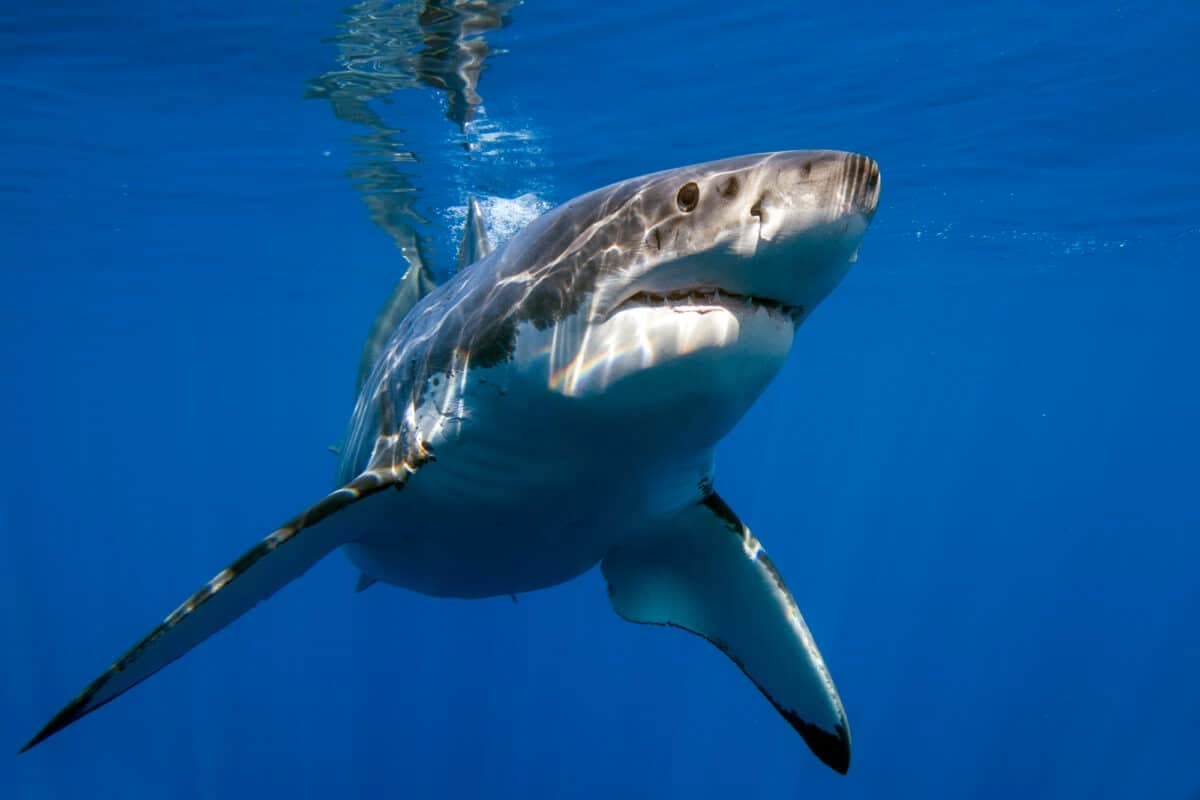
The habitat of the great white shark is vast, spanning all of the world’s major oceans. These apex predators can be found along the coasts of California and in the waters near Australia and South Africa. In addition, they are often seen near seal and sea lion colonies, which provide a reliable food source for these animals.
On the other hand, the saltwater crocodile can be found in many different water bodies, including rivers, swamps, and the open ocean. Despite their distinct geographic ranges, great white sharks and saltwater crocodiles have several overlapping areas where they may be found. These areas include estuaries and coastlines in Australia, where both species are known to frequent. There have been documented cases of great white sharks and saltwater crocodiles sharing the same waters in Australia’s Northern Territory.
Diet And Hunting
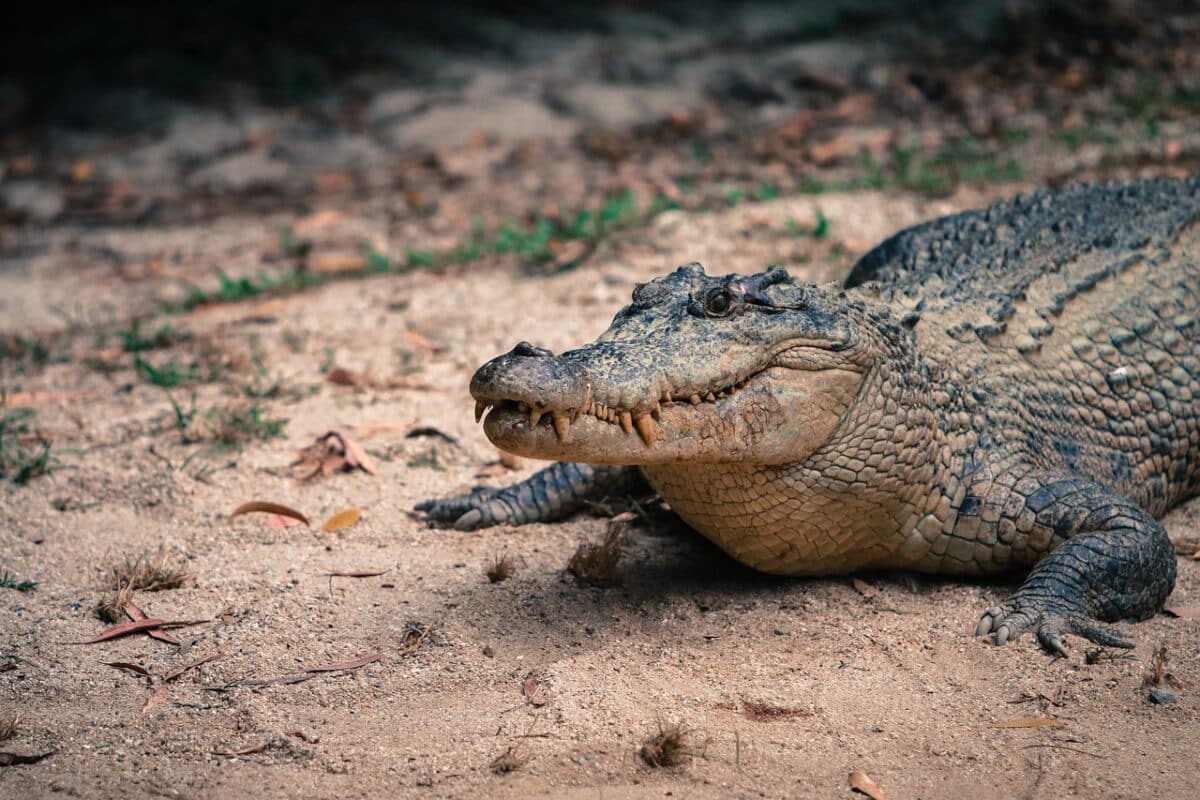
Great white sharks prey on many marine animals, from smaller sharks and rays to larger fish like tuna and mammals like seals and sea lions. To catch their prey, great white sharks use a variety of strategies. They often rely on stealth and cunning, hovering just below the water’s surface and tracking their prey until the perfect moment to strike.
On the other hand, saltwater crocodiles are also apex predators with a wide-ranging diet. They eat everything from fish and birds to mammals and even other reptiles like smaller crocodiles. However, unlike great white sharks, saltwater crocodiles are terrestrial predators, which means they hunt both in water and on land.
Behavior
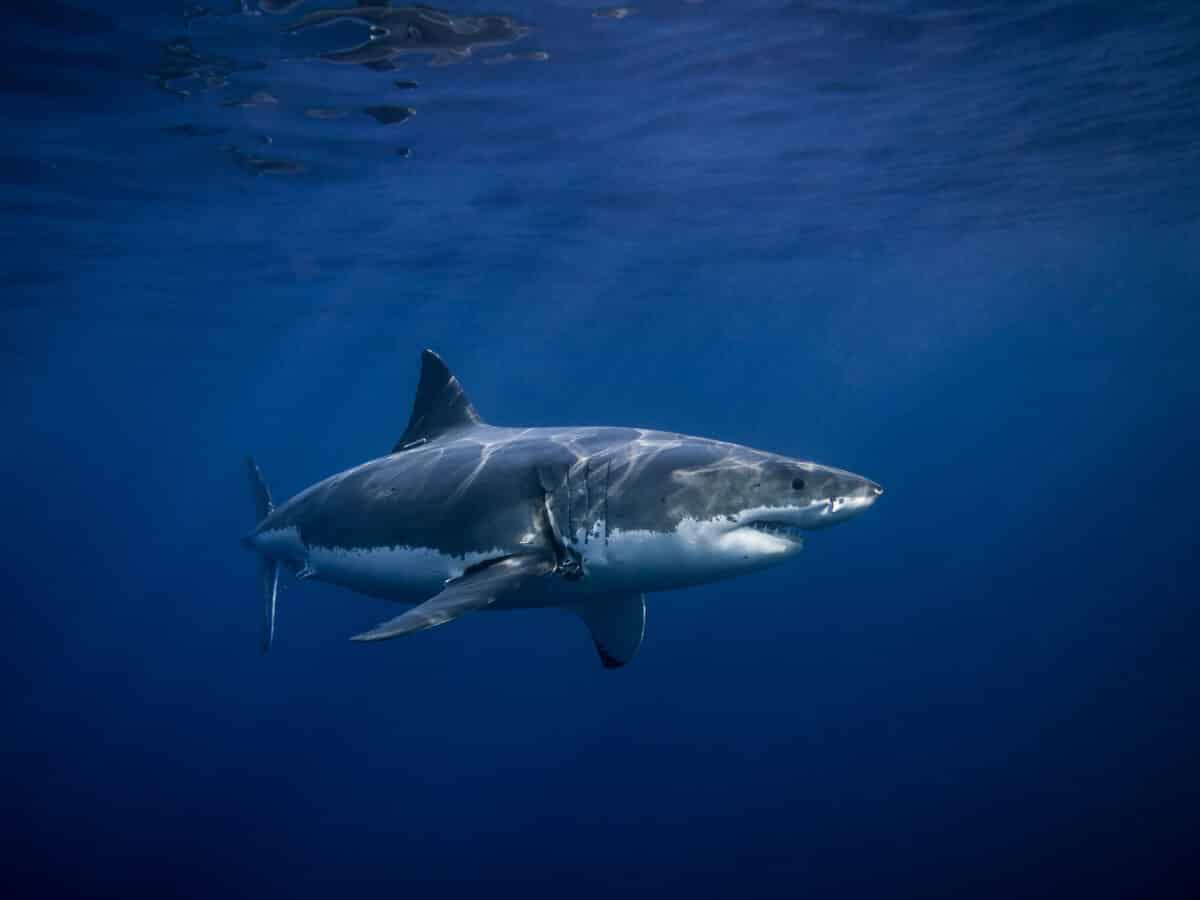
Great white sharks and saltwater crocodiles are fascinating creatures with strikingly different behaviors. The great white sharks are impressive hunters that can reach speeds of up to 35 miles per hour. They also can jump as high as ten feet out of the water. They are often drawn to boats and may even investigate them, making encounters with these creatures thrilling and awe-inspiring.
On the other hand, saltwater crocodiles are opportunistic hunters and are the most giant reptiles on Earth. Their powerful jaws can bite down with force up to two tons, making them one of the most dangerous animals in the world.
Both great white sharks and saltwater crocodiles have a reputation for being dangerous to humans and are responsible for numerous attacks each year. However, it’s worth noting that these attacks are relatively rare, particularly when compared to other human-related causes of death. Despite their fearsome reputations, these creatures are essential to the marine ecosystem and deserve our respect and admiration.
Lifespan
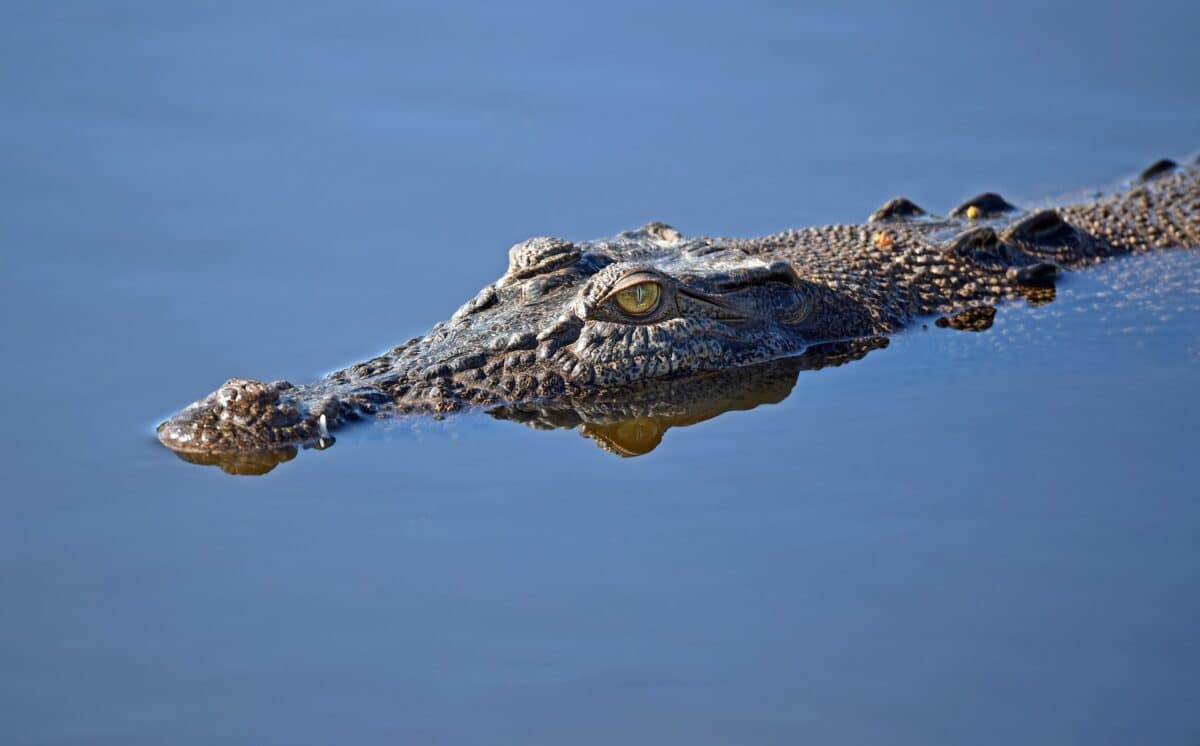
Great White Sharks and Saltwater Crocodiles are formidable predators inhabiting different aquatic environments. When it comes to their lifespans, these creatures exhibit notable differences. Great White Sharks have a relatively long lifespan, with individuals capable of living up to 70 years. This extended lifespan allows them to develop into highly efficient hunters and apex predators within their marine ecosystems.
On the other hand, Saltwater Crocodiles have a comparatively shorter lifespan, typically ranging from 65 to 70 years. Despite their shorter lifespans, these crocodiles have ample time to grow into massive and powerful creatures, establishing themselves as apex predators in their freshwater and estuarine habitats. Both species demonstrate remarkable longevity, contributing to their prowess and adaptability as ruthless predators in their respective domains.
FAQS
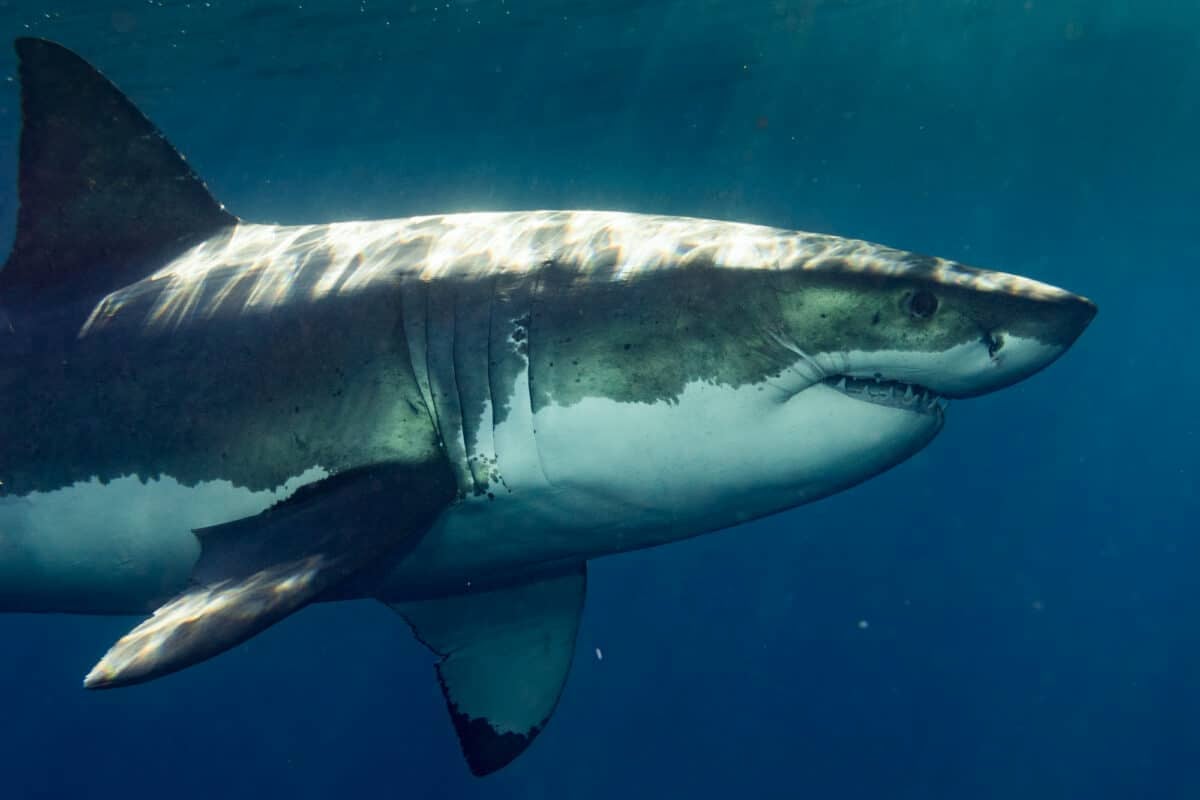
- Who Would Win In A Fight Between A Great White Shark And A Saltwater Crocodile?
While it’s difficult to determine the outcome of a hypothetical fight between these two powerful predators, it largely depends on the circumstances and size of the individuals involved. The Great White Shark and the Saltwater Crocodile are formidable hunters in their respective habitats. They each have unique strengths and adaptations. However, due to their differences in habitat and hunting techniques, confrontations between them are sporadic.
Watch this epic face-off between a Great White Shark and a Saltwater Crocodile.
- Which Species Is Larger – The Great White Shark Or The Saltwater Crocodile?
In terms of sheer size, the Saltwater Crocodile takes the crown. Adult Saltwater Crocodiles can grow up to lengths of 23 feet. They weigh over 2,200 pounds, making them the most significant living reptiles on Earth. On the other hand, the Great White Shark typically reaches lengths of up to 20 feet. They can weigh over 5,000 pounds..
- Where Can The Great White Shark And The Saltwater Crocodile Be Found?
Great White Sharks can be observed near the coasts of California, Australia, and South Africa. As well as other areas with high marine mammal populations. On the other hand, Saltwater Crocodiles inhabit various environments, including rivers, swamps, and the open ocean. While their ranges overlap in some regions, encounters between the two species are rare due to differences in their preferred habitats.
Wrapping Up with Great White Sharks Vs. Saltwater Crocodiles
In conclusion, comparing great white sharks and saltwater crocodiles allows us to understand the unique characteristics that define these apex predators. Despite their contrasting features and habitats, they are formidable creatures dominating their respective ecosystems. Studying their adaptations, behaviors, and contributions to the food chain can help us appreciate the intricate web of life surrounding us.
However, it’s vital to remember that encountering these creatures in the wild requires caution and respect. Their power demands distance and observation from a safe vantage point. By cultivating a more profound knowledge of these creatures, we can develop a greater love and respect for the diversity of life on this planet.
Next up:
- American Black Bears Vs. Nile Crocodiles
- Fearsome Saw-Scaled Viper Bite
- Great White Shark Vs. Oceanic Whitetip Shark
- Bald Eagle Family Expand Their Nest In California - April 24, 2024
- Firefighter Saves Abandoned Kittens Found Cuddling In Hoses - April 24, 2024
- Dolphins Get High Playing Catch With A Pufferfish - April 24, 2024

